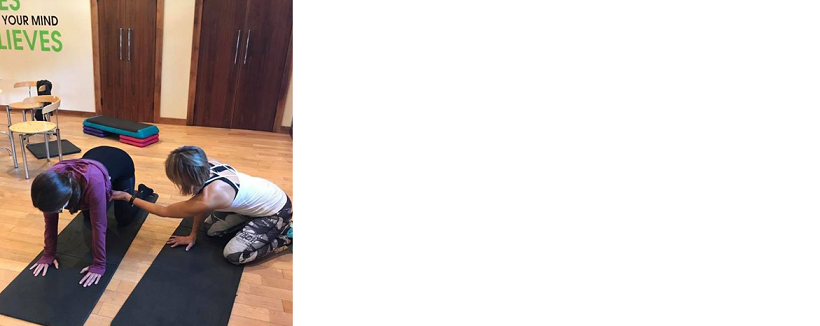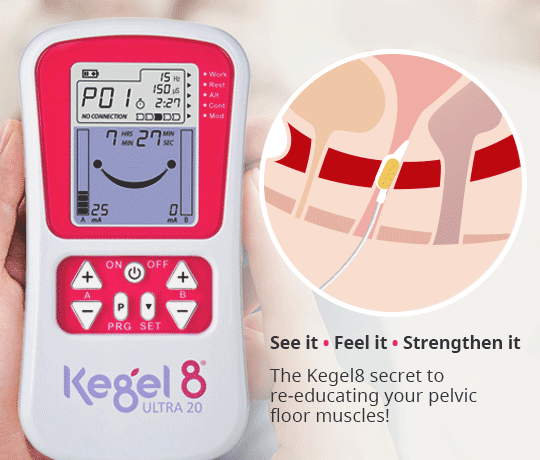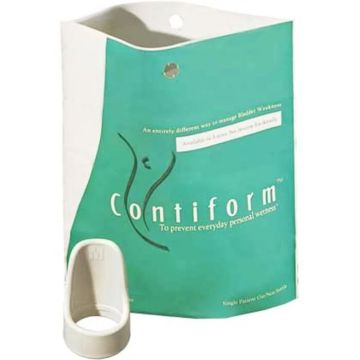

The below blog is provided by Louise Field.
Isn't it an amazing feeling when our consultant or GP gives us the all clear after childbirth, or post-hysterectomy/gynaecological surgery?!
At last we can get back to normal living and enjoying doing everything we love.
After our initial recovery post-birth/operation we can experience a fantastic feeling at ecstatic levels to throw ourselves into everything that we have missed. Or, we may be in the position that our job or finances are calling us to return to work ASAP!
Any active role puts pressure in the very areas that are still regaining strength and muscle balance. The core is involved with every breath and movement we take. If your daily life involves being a mum, carer, shop assistant, or basically anything that means you need to get out of bed in the morning, you need to have your body prepared to take on that role.
Let's consider this more closely...
I had a very active (manic) life; 8 of us living together, 3 children under three years old, my husband and I both self-employed, and myself teaching fitness classes when I was first diagnosed with a bladder and bowel pelvic organ prolapse. Roll on 18 months and I had my fascia stitched as an anterior and posterior repair. Sadly, I know of too many mums, post-birth, who struggle with pelvic floor issues.
It's a shame that we can be unaware of the many resources available to help reduce the possibility of the prolapse from occurring in the first place... but hey, that is another blog.
Surgery is not a quick fix...
My pelvic floor has been manually mended, it is always going to be my vulnerable area.
"Surgery alone doesn't automatically and magically get all our muscles working in balance and harmony.
My torn fascia had been repaired by the surgeon, but gaining flexibility, relaxation, strength, with the motor skills to react together in activity is as important as the repair itself."
Recovery
With any operation, recovery is part of the healing process and once we receive clearance from the surgeon, rehab begins.
Let's use a knee operation as an example...
After rest, rehab is required to prepare the knee for action. Scar tissue can be an issue and strength with flexibility is necessary to achieve a successful result and a fully functional knee. It would be crazy to think that it is possible to undertake vigorous activity, or to even climb up or down many stairs, prior to building strength.
If rehab is a given to gain functional strength for the knee, why on earth would we be under the impression that returning to exercise or physical activity post-birth or surgery is not?
Yes, it is essential to address scar tissue, flexibility with strength and correct muscle activation helps to achieve a reactive core and pelvic floor muscle group.

Post-Surgery
My personal experience was a successful surgery; my post-care was a sheet with some exercises and a check-up at 12 weeks with the all clear to return to normal activity.
Fortunately, I realised I needed to gradually build up my reactive pelvic floor and core for the activity load I experience on a daily basis.
You may feel fine initially, and have received clearance from the surgeon, but I strongly recommend to make an appointment with a Specialist Women's Pelvic Health Physiotherapist to have a full examination to gain advice on how to return back to full functional strength. This examination and advice is vital to becoming really strong, and it will benefit you in the long-term.
Often, Specialist Women's Pelvic Health Physios either teach Pilates, or have contact with fitness professionals that are experts in returning to exercise and functional strength.
I will never take my pelvic health for granted, for that reason, I give this area the TLC it deserves!

Post-Birth
Posture changes during pregnancy, you may be interested to know how this alone can have an effect on the pelvic floor muscles.
Post-birth, our posture may not automatically adjust, in fact, it can continue to follow the same learned pattern and exaggerate further still as we care for our little ones during the early years. Feeding and carrying not just our little baba (that is gaining weight daily), but also lifting things, like the car seat etc, can take a lot of core strength.
The body has gone through a huge change, and as natural as the birthing process is, if you are hoping for your pre-pregnancy body figure, posture and pelvic floor reaction to return, it is important to regain muscle balance.
Typical Posture Signs in the Post-Natal Mother
- The chest muscles can become tight and, in turn, pull the shoulders forward
- The thoracic spine can become overactive
- The deep lower abdominals need to regain functional strength
- The pelvis can have a tendency to prefer a posterior tilt alignment
Putting in place a few simple changes can make a huge difference to improving posture and overall health.
Do You Need a Mummy MOT?
The birthing process itself is a beautiful, natural miracle, yet trauma is experienced to the body; and so after our recovery period, we receive a post-natal check with the GP at 6-8 weeks post-birth.
If you have the resources, I thoroughly recommend an appointment with a Mummy MOT Practioner. A Mummy MOT is a specialist postnatal examination for women following both vaginal and caesarean deliveries. You will be assessed on how your posture, pelvic floor muscles and stomach muscles are recovering after birth. You will receive tools to help in your recovery and to help in your recovery and to return to exercise safely.
"It is a myth that it is normal to expect to live with incontinence post-birth. It is common, but can be reduced with correct advice. Continence is fundamental to our wellbeing and 80% of pelvic floor issues can be resolved with a few simple strategies."
I strongly urge every woman to seek the professional guidance to rehab back to full fitness for our functional living and activities.
Where and How?
Kegel8 give great advice on their telephone service, website and on their YouTube channel.
Pelvic Roar is an amazing collaboration of 3 Specialist Pelvic Health Physiotherapists, offering advice on their website.
Adore Your Pelvic Floor offers education to the Fitness Health industry and to women in the community.
If you require a Specialist Women's and Men's Pelvic Health Specialist for an examination, clinical diagnosis, post-surgery check, or a Mummy MOT, please feel free to contact any one of the above links and we will aim to send you the details of the nearest registered practitioner to you.
Please, do not ignore your pelvic floor health, because ladies, continence and freedom are important and we deserve to enjoy our best self.







